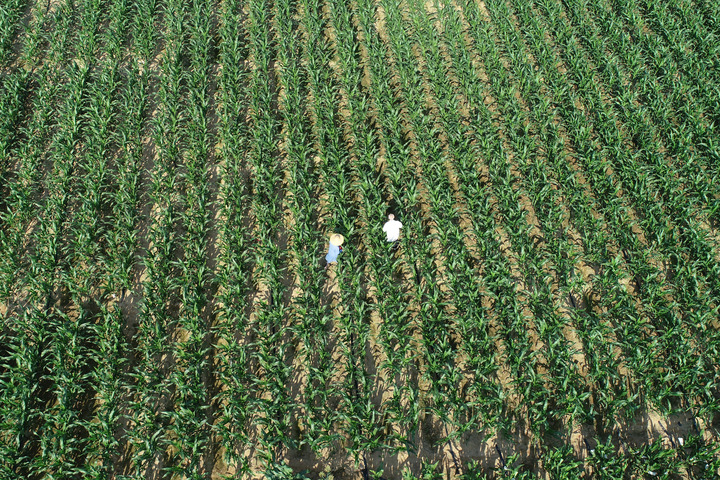SANYA, March 24 (Xinhua) -- China will encourage technological innovation to boost domestic supplies of high-quality seeds, dubbed "agriculture microchips," officials said at a seed industry convention.
Despite years of bumper harvests, experts and officials have warned against China's over-reliance on foreign seeds for a variety of crops, an underbelly of the campaign to secure food security in the world's most populous nation.
China will speed up the revision of its seed law and regulations on protecting new plant species to foster innovation, Zhang Taolin, vice agriculture minister, told the ongoing 2021 China Seed Congress and Nanfan Agricultural Silicon Valley Forum.
The country will enhance intellectual property rights (IPR) protection to protect innovators in the industry, Zhang said at the event in the city of Sanya, south China's Hainan Province, home to a national seed breeding base.
Echoing Zhang's call, He Xiaorong, vice president of the Supreme People's Court, pledged to beef up IPR protection and strengthen judicial protection involving new plant species.
The vice minister said China will allow its market to become a vital driving force in germplasm innovation and nurture both leading enterprises in the field and specialized, innovative small and medium-sized firms.
Multinational companies have become the main body of investment and technological innovation in the global seed industry, said Wan Jianmin, vice president of the Chinese Academy of Agricultural Sciences.
But in China, innovation in this field still stems mostly from research institutes, colleges and universities, Wan said.
China had 17 consecutive years of bumper harvests in grain production, with grain output exceeding 650 billion kg for six years in a row, official data showed.
However, China's grain supply and demand remain in a "tight balance," and the country still faces many weak links in germplasm resource protection and breeding technologies, according to the Ministry of Agriculture and Rural Affairs.
While rice and wheat seeds used in China's agricultural sector have achieved self-sufficiency, agriculturists said certain corn and vegetable varieties still heavily rely on the more expensive foreign seeds.
"The price of white turnip seeds from the Republic of Korea (ROK), for instance, is over 20 times that of the domestic ones, but their turnips still win over the market with better appearances and juicier textures," said Liu Pengkui, an official with Hunan agriculture department.
Wan said China has seen significant progress in basic research involving germplasm in recent years as Chinese scientists have completed sequencing or resequencing of a variety of key agricultural crops, and the country's genome research on rice and wheat is among the top in the world.
Yet the country's seed industry still faces a lack of originality in basic research, cutting-edge and core technologies, Wan said, stressing an urgent need to improve the corporate innovation on seed breeding.
There are more than 5,000 seed companies in China, but they are mainly small in scale and weak in innovation. Their combined R&D investments in 2018 were much less than that of U.S. agrochemical company Monsanto, he added. Enditem




 A single purchase
A single purchase









